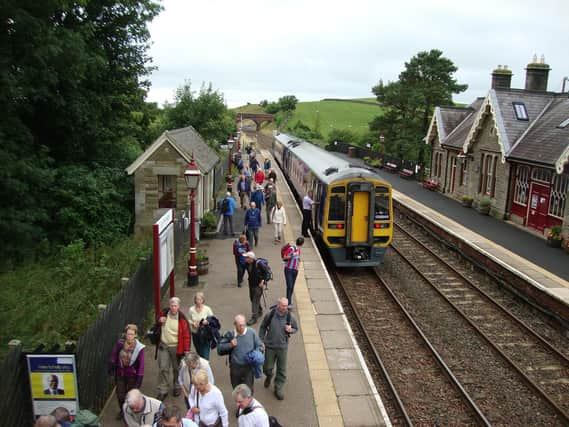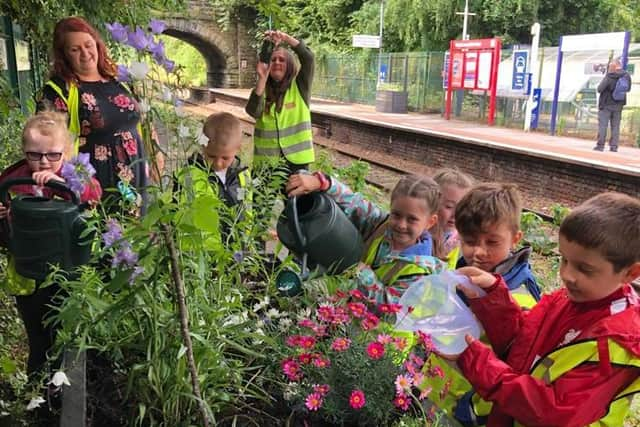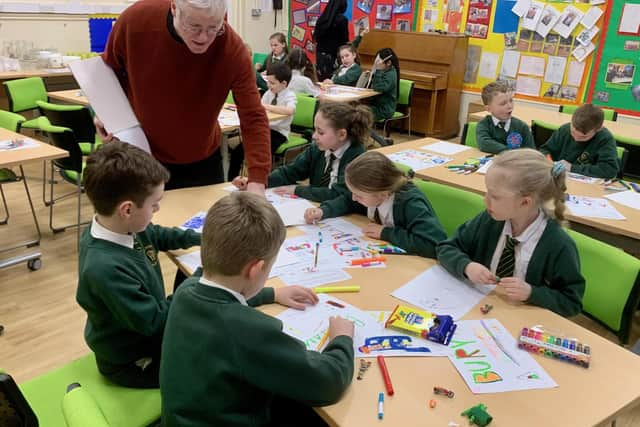Community Rail Network: The people giving Lancashire's railways a bit of tender loving care


Still revolutionary, albeit on a slightly less grand scale, they continue to play an important role in day-to-day life, and there to make sure local commuters get the most out of their local railway is the Community Rail Network.
Founded in 2000, the CRN nurtures a blossoming movement of community-based rail partnerships across the UK, 19 of which are based in Lancashire and which are involved in everything from gardening initiatives to multi-million pound infrastructure projects such as the Todmorden Curve scheme.
Advertisement
Hide AdAdvertisement
Hide Ad"We get involved in everything from quite strategic stuff to the nitty-gritty and everything in between," says Richard Watts, the chair at Community Rail Lancashire. "On the more strategic side, we work with councils and carry out studies while, at the other end of the spectrum, we do little things like producing leaflets to encourage people to use the railway more.


"You name it, we cover it," adds Richard, who has been involved in CRLancs since it was founded six years ago. "We also work with the voluntary groups who look after stations, like in St Annes where they have the Hidden Gems project which encourages local people to explore the area. These people give their station that extra bit of TLC, which really makes a difference."
A membership organisation which engages with people to make stations more relevant to local communities and to deliver social benefit, the CRN provides support, advice, and info to pool insights from both their bustling volunteer force and the rail industry alike. The ultimate aim is to better advocate for community rail and more effectively champion its importance.
"The pandemic has thrown many challenges our way but opportunities too," says Jools Townsend, CRN's Chief Executive. "Engaging with and hearing from communities can help the rail industry to seize on this moment of change. To do that, we need to understand what communities need and want, including people who don’t use rail but might, and be as responsive as we can.
Advertisement
Hide AdAdvertisement
Hide Ad"This isn’t only about rail’s recovery," adds Jools. "[It's about] rail playing the maximum role in the recovery and long-term sustainability of our communities and cementing its place as the backbone of a sustainable transport system."


With areas which have a community rail partnership seeing an increase in the percentage of travellers using the train, the CRN is also an important advocate when it comes to making vital changes to local stations as well as bigger picture issues such as sustainable travel.
With CRN boasting over 8,500 volunteers who give more than 390,000 hours to community rail initiatives worth an estimated £5.6m each year, the group has the potential to enact real positive change not just in Lancashire, but across the entire country.
"I've been involved in railways one way or another since 1981 and community rail is all about the community," says Richard, with CRLancs having five members of staff. "We couldn't do what we do without the volunteers on the ground and it's that connection with the local community which helps make a real difference. It's so, so important."
Comment Guidelines
National World encourages reader discussion on our stories. User feedback, insights and back-and-forth exchanges add a rich layer of context to reporting. Please review our Community Guidelines before commenting.